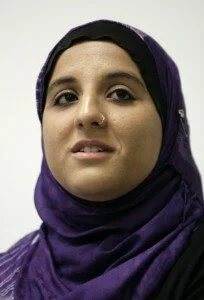
The following is from the English translation of a section of the abridged tafsir based on the book ‘tayseer ila usul it-tafsir’ by Shaykh Ata bin Khalil Abu Rishta.
إِنَّ الَّذِينَ كَفَرُوا سَوَاءٌ عَلَيْهِمْ أَأَنْذَرْتَهُمْ أَمْ لَمْ تُنْذِرْهُمْ لَا يُؤْمِنُونَ
خَتَمَ اللَّهُ عَلَىٰ قُلُوبِهِمْ وَعَلَىٰ سَمْعِهِمْ ۖ وَعَلَىٰ أَبْصَارِهِمْ غِشَاوَةٌ ۖ وَلَهُمْ عَذَابٌ عَظِيمٌ
“Verily, those who disbelieve, it is the same to them whether you warn them or do not warn them, they will not believe.” {6}
“Allah has set a seal on their hearts and on their hearings, and on their eyes there is a covering. Theirs will be a great torment.” {7}
Allah سبحانه وتعالى explained in the previous verses that the book is from Allah in truth and that there is no doubt in it. He سبحانه وتعالى explained the status of those who are guided by the book and have taqwa, as the successful ones. Then Allah سبحانه وتعالى explained in verses 6 and 7 the situation of those who reject; that warning them does not benefit them, because Allah has sealed their hearts.
These verses are like an answer to a question by one in confusion about his command, asking why did Allah not guide the disbelievers? This is because if the Arabs say “inna ‘Abdallah qaaim” “verily, Abdullah is standing”, then this is an answer to one who is doubtful about the standing and therefore questions Abdullah’s standing. So, when Allah سبحانه وتعالى begins the verse with إِنَّ الَّذِينَ كَفَرُواْ سَوَاءٌ , linguistically it will be according to what has just been mentioned.
“Abdullah qaaim” (Abdullah is standing) is information about his standing.
“inna Abdullah qaaim” (verily Abdullah is standing) is an answer to one questioning about his standing and he is doubtful about it.
“inna Abdullah la-qaaim” (verily Abdullah is not standing) is an answer to one questioning and he is denying the standing. Mubarad said this.
The appearance of the hamzat ut-tasweeyah (أ) along with أَمْ (or) makes them free from the meaning of enquiry, and establishes the equality between both of them, i.e. with regards to the disbelievers, it is the same whether you warn them or not, they won’t believe – thus, equalising between the two situations.
If the word سَوَاءٌ ‘whether’ has the alif al-istifhaam (alif of enquiry) after it, then it must come with أَمْ (or) e.g. سَوَاءٌ عليّ أقمت أم قعدت ‘it is the same to me whether you stood or sat’. If one of two names were joined (عطف) after it, they are عطف joined with و ‘and’, none other, e.g. سَوَاءٌ عندي زيد وعمرو ‘Zaid and Amr are the same to me’. If after it there were two verbs and no istifhaam, then they are عطف joined together with أَوْ (or) e.g. سَوَاءٌ عليّ قمت أو قعدت ‘it is the same to me whether you stood or sat’. If there were two verbal nouns after it, e.g. سَوَاءٌ عليّ قيامك و قعودك ‘it is the same to me whether your standing or your sitting’, then they are عطف joined with و ‘and’ or with أَوْ (or).
Some further issues arise from this discussion.
1. The term الَّذِينَ (those who) is from the forms of generality, so with this meaning Allah سبحانه وتعالى informs us that those who disbelieve will not become believers, whatever the warning or bringing Islam to them. So, is this matter left general or is it specified at all?
This matter is certainly not left general, as Rasul Allah صلى الله عليه وسلم was sent to bring Islam to the disbelievers. Whoever believed from them became a believer and whoever remained, remained on kufr. Therefore, this general text is specified, with the specification being completed here with the mind. The mind can specify the shariah text if the subject matter was the aqeedah, i.e. kufr and iman, because the mind is the way to iman. Similarly, the mind specifies His سبحانه وتعالى saying:
ذَٰلِكُمُ اللَّهُ رَبُّكُمْ خَالِقُ كُلِّ شَيْءٍ لَا إِلَٰهَ إِلَّا هُوَ ۖ فَأَنَّىٰ تُؤْفَكُونَ
“That is Allah, your Lord, the Creator of all things, none has the right to be worshipped but He, so how have you been turned away?” [Al-Ghaafir, 40:62]
So, كُلِّ شَيْءٍ “all things” is general, but it is specified by the mind to other than Allah سبحانه وتعالى. The verse إِنَّ الَّذِينَ كَفَرُواْ “those who disbelieve” is specified by the mind to the tribes of the disbelievers whom Rasul Allah صلى الله عليه وسلم was told would never become believers. It is authentically narrated from Ibn Abbas (ra) that he said: “this verse is about the learned Jews who were at the time of Rasul Allah صلى الله عليه وسلم and did not become believers.” Ar-Rabee’ bin Anas said: “it was sent down about some men from Quraysh who were killed at Badr.” Others said that it is about specific kuffar like Abu Lahab and Abu Jahl… [Tafsir at-Tabari 1:109]
2. Referring the ‘sealing’ back to Allah خَتَمَ اللّهُ عَلَى قُلُوبِهمْ is from the mutashabih (having more than one interpretation). The stronger opinion is that the meaning is that those specific kuffar insisted on their kufr, objecting to the truth, so that was cemented in their hearts, such that it was as if they were created with locked, closed hearts that do not accept iman or guidance. It follows then, that the meaning is majaz (metaphorical) for solidifying their hearts’ and insistence on kufr, is as though Allah created them with that attribute.
The الخَتَمَ (seal) and الغِشَاوَةٌ (the covering) can be used to indicate their dominant determination to disbelieve, so it is as though they are deaf, dumb and blind, as in the verse:
صُمٌّ بُكْمٌ عُمْيٌ فَهُمْ لاَ يَعْقِلُونَ
“deaf, dumb and blind. So they do not understand” [al-baqarah, 2:171]
Allah سبحانه وتعالى mentioned الخَتَمَ (the seal) for القلب (the heart) and السمع (the hearing), and mentioned الغِشَاوَةٌ (the covering) for the sight, due to the suitability of الخَتَمَ, which is locking and stamping with a seal for the heart (the mind).
Because of this, the complete pause after سَمْعِهِمْ:
خَتَمَ اللّهُ عَلَى قُلُوبِهمْ وَعَلَى سَمْعِهِمْ وَعَلَى أَبْصَارِهِمْ غِشَاوَةٌ
is preferred rather than continuing the recitation, because الخَتَمَ is for السمع and القلوب, with the و ‘and’ after it is for initiating a new statement, hence غِشَاوَةٌ has two damma (the grammatical indicator of the beginning part of a new sentence).
القلب is used metaphorically here to mean the mind, due to its similarity in importance to the body. In the language of the Arabs the heart is used metaphorically to mean the mind in more than one situation. The Qur’an was sent down in the language of the Arabs and this usage is in more than one verse. Allah talked of the mind by mentioning the heart in many verses. For example:
فَتَكُونَ لَهُمْ قُلُوبٌ يَعْقِلُونَ بِهَا
“and have they hearts wherewith to understand” [al-hajj, 22:46]
Comprehension with the hearing and heart (mind) is not limited to only one angle as the sight is. You hear matters from more than one angle and understand them from more than one side, yet you see with your two eyes what is in front of you, i.e. only one angle. So, الخَتَمَ was suitable for القلب and السمع to lock from more than one angle, while الغِشَاوَةٌ (the covering) was suitable for الأبصار (the sight) to lock from one angle. Therefore, الخَتَمَ is not used to describe the eyes at all in the book of Allah, nor in the narrations of Rasul Allah صلى الله عليه وسلم, nor does it exist in the language of anyone of the Arabs, as far as I know.
3. Allah سبحانه وتعالى repeated the word عَلَى “upon”
خَتَمَ اللّهُ عَلَى قُلُوبِهمْ وَعَلَى سَمْعِهِمْ وَعَلَى أَبْصَارِهِمْ غِشَاوَةٌ
to emphasise the severity of الخَتَمَ, as though الخَتَمَ was completed in two places, القلب (the heart) and السمع (the hearing), which is stronger than الخَتَمَ in only one place. For example, the one who protects something by putting it into a locked container inside a locked house, is stronger protection than putting it into a locked container inside an unlocked house. It is the same in this verse. Repeating عَلَى necessitates noticing the meaning of the related action (خَتَمَ), as though it was mentioned twice (i.e. خَتَمَ اللّهُ عَلَى قُلُوبِهمْ وَعَلَى سَمْعِهِمْ). Therefore, they said about the sentence “مررتُ بزيد وعمرو I happened upon Zayd and Amr” that it is one occasion, whereas the sentence “مررتُ بزيد وبعمرو I happened upon Zayd and upon Amr” that they are two occasions, as though when you repeated the particle you said “مررتُ بزيد ومررتُ بعمرو I happened upon Zayd and I happened upon Amr.” The two occasions is stronger in meaning than just using the عطف joining together without repeating the genitive particle, due to what is in the عطف joining together of the meaning on one occasion or two.
4. Allah brought the words القلوب (hearts) and الأبصار (sight) in their plural forms, while He سبحانه وتعالى brought the word السمع (hearing) in the singular. The word السمع does not come in the whole of the Qur’an al-kareem except in the singular. Some said about that: “السمع is a verbal noun in origin: it is said سمعت الشيئ سمعا وسماعا and the verbal nouns do not come as plurals as they are the names of categories”, except that this is not precise, because “الاسماع” did come in the language of the Arabs, but it is rare and seldom heard.
The preferred opinion is that the differences between people’s thinking and minds in relation to matters, and also their differences in seeing things with the eyes, is more common than their differences in hearing these matters, so the hearts (minds) and sight were made plural, while the hearing was left singular.
Because of that, when العلم i.e. اليقين certainty is mentioned in another verse, such that العلم indicates the lack of differences, so, the hearing, sight and the heart all come in the singular:
وَلاَ تَقْفُ مَا لَيْسَ لَكَ بِهِ عِلْمٌ إِنَّ السَّمْعَ وَالْبَصَرَ وَالْفُؤَادَ كُلُّ أُولـئِكَ كَانَ عَنْهُ مَسْؤُولاً
“And follow not that of which you have no knowledge of. Verily! The hearing, and the sight, and the heart, about each of those you will be questioned.” [Al-Israa, 17:36]
The subject of the heart, hearing and sight
1. In the Qur’an al-kareem comes the mentioning of the hearts first, then the hearing and then the sight when the matter is linked to iman, as the mind is its tool.
خَتَمَ اللّهُ عَلَى قُلُوبِهمْ وَعَلَى سَمْعِهِمْ وَعَلَى أَبْصَارِهِمْ غِشَاوَةٌ وَلَهُمْ عَذَابٌ عظِيمٌ
“Allah has set a seal on their hearts and on their hearings, and on their eyes there is a covering. Theirs will be a great torment.” [al-Baqarah, 2:7]
After
إِنَّ الَّذِينَ كَفَرُوا سَوَاءٌ عَلَيْهِمْ أَأَنْذَرْتَهُمْ أَمْ لَمْ تُنْذِرْهُمْ لَا يُؤْمِنُونَ
“Verily, those who disbelieve, it is the same to them whether you warn them or do not warn them, they will not believe.” [al-baqarah, 2:6]
ذَٰلِكَ بِأَنَّهُمُ اسْتَحَبُّوا الْحَيَاةَ الدُّنْيَا عَلَى الْآخِرَةِ وَأَنَّ اللَّهَ لَا يَهْدِي الْقَوْمَ الْكَافِرِينَ
أُولَٰئِكَ الَّذِينَ طَبَعَ اللَّهُ عَلَىٰ قُلُوبِهِمْ وَسَمْعِهِمْ وَأَبْصَارِهِمْ ۖ وَأُولَٰئِكَ هُمُ الْغَافِلُونَ
“That is because they loved and preferred the life of this world over that of the Hereafter. And Allah guides not the people who disbelieve. They are those upon whose hearts, hearing and sight Allah has set a seal. And they are the heedless!” [an-Nahl, 16:107-108]
2. If the matter was about other than iman and was about following the warning and guidance, hearing was brought forward, because it is the direct tool for the transmission. Allah سبحانه وتعالى says:
أَفَرَأَيْتَ مَنِ اتَّخَذَ إِلَهَهُ هَوَاهُ وَأَضَلَّهُ اللَّهُ عَلَى عِلْمٍ وَخَتَمَ عَلَى سَمْعِهِ وَقَلْبِهِ وَجَعَلَ عَلَى بَصَرِهِ غِشَاوَةً فَمَن يَهْدِيهِ مِن بَعْدِ اللَّهِ أَفَلَا تَذَكَّرُونَ
“Have you seen him who takes his own lust as his god, and Allah knowingly, left him astray, and sealed his hearing and his heart, and put a cover on his sight. Who then will guide him after Allah? Will you not then remember?” [al-Jathiyah, 45:23]
It is transgression due to not heeding the warnings, therefore the end of the verse came with أَفَلَا تَذَكَّرُونَ, so it was suitable here to bring forward the hearing.
3. When Allah سبحانه وتعالى mentioned His favours for his servants, by creating them, He mentioned the hearing, the sight and the heart in order, which points to the order of creating these organs. He سبحانه وتعالى says:
وَاللّهُ أَخْرَجَكُم مِّن بُطُونِ أُمَّهَاتِكُمْ لاَ تَعْلَمُونَ شَيْئًا وَجَعَلَ لَكُمُ الْسَّمْعَ وَالأَبْصَارَ وَالأَفْئِدَةَ لَعَلَّكُمْ تَشْكُرُونَ
“And Allah has brought you out from the wombs of your mothers while you know nothing. And He gave you hearing, sight, and hearts that you might give thanks.” [an-Nahl, 16:78]
وَهُوَ الَّذِي أَنشَأَ لَكُمُ السَّمْعَ وَالْأَبْصَارَ وَالْأَفْئِدَةَ قَلِيلًا مَّا تَشْكُرُونَ
“It is He, Who has created for you hearing, sight, and hearts. Little thanks you give.” [al-Mu'minoon, 23:78]
قُلْ هُوَ الَّذِي أَنشَأَكُمْ وَجَعَلَ لَكُمُ السَّمْعَ وَالْأَبْصَارَ وَالْأَفْئِدَةَ قَلِيلًا مَّا تَشْكُرُونَ
“Say it is He Who has created you, and endowed you with hearing, seeing, and hearts. Little thanks you give.” [al-Mulk, 67:23]
ثُمَّ سَوَّاهُ وَنَفَخَ فِيهِ مِن رُّوحِهِ وَجَعَلَ لَكُمُ السَّمْعَ وَالْأَبْصَارَ وَالْأَفْئِدَةَ قَلِيلًا مَّا تَشْكُرُونَ
“Then He fashioned him in due proportion, and breathed into him the soul, and He gave you hearing, sight and hearts. Little is the thanks you give!” [Sajda, 32:9]
Source: khilafah
 The elaborate hoax of a lesbian girl in Damascus has shocked the world. For many it was impossible to conceive that a woman, let alone a lesbian, would be able to express themselves politically and socially in an Islamic country like Syria.
The elaborate hoax of a lesbian girl in Damascus has shocked the world. For many it was impossible to conceive that a woman, let alone a lesbian, would be able to express themselves politically and socially in an Islamic country like Syria.


